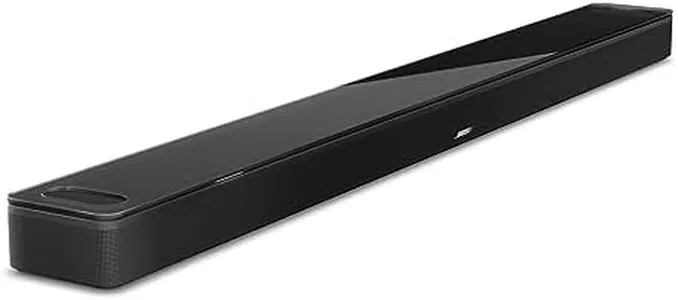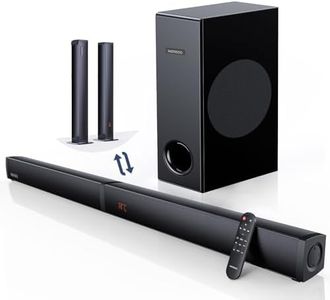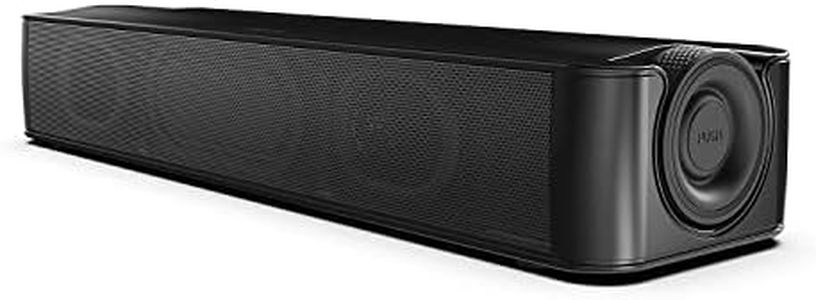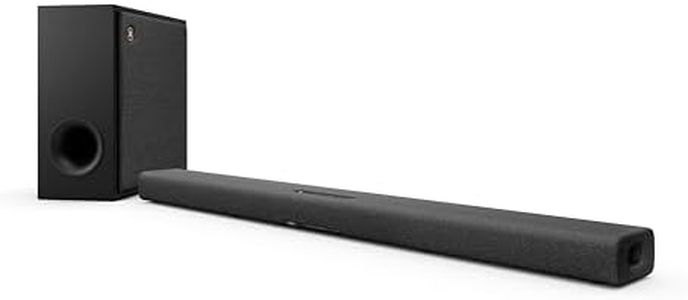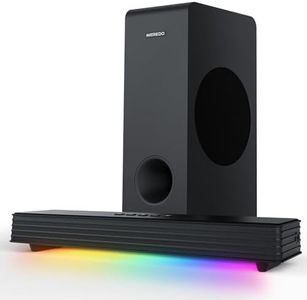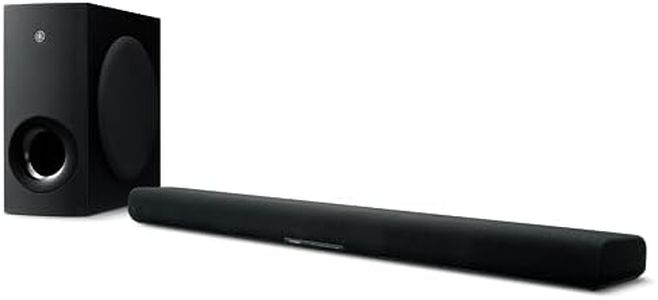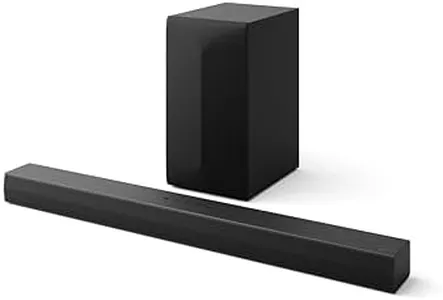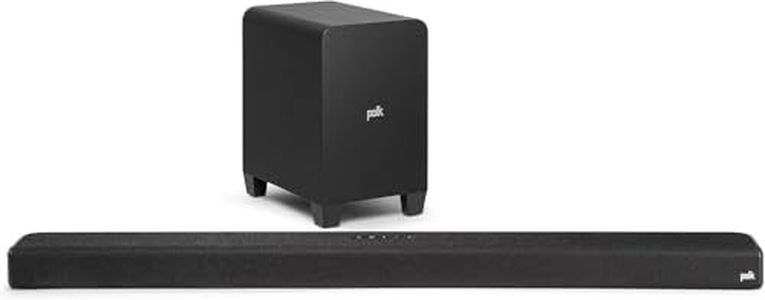We Use CookiesWe use cookies to enhance the security, performance,
functionality and for analytical and promotional activities. By continuing to browse this site you
are agreeing to our privacy policy
10 Best Soundbars For The Money
From leading brands and best sellers available on the web.By clicking on a link to a third party's website, log data is shared with that third party.
Buying Guide for the Best Soundbars For The Money
Choosing the right soundbar can make a huge difference in your home theater experience, turning ordinary TV sound into immersive audio without the hassle of complex speaker setups. When looking for a soundbar, you should focus on features that matter to you, such as audio quality, connectivity, and size. It’s important to first think about the room where you’ll use the soundbar and the kind of content you typically watch — such as movies, sports, or music — as this will guide you toward the right set of features and specs. There are many soundbars available, so understanding the main specifications will help you narrow down your options and pick the one that fits your needs best.Audio Channels (e.g., 2.0, 2.1, 5.1)The number of audio channels tells you how many discrete audio signals or speakers are built into the soundbar. This is important because it affects the sense of space and immersion you get from the sound. For example, a 2.0 soundbar has two channels (usually left and right), while a 2.1 adds a subwoofer for extra bass, and a 5.1 system includes rear channels and a subwoofer for surround sound. If you mainly watch TV shows or news, a 2.0 channel may be enough. If you love movies or music with rich bass, look for at least a 2.1. For a real cinema feel, especially in larger rooms, a 5.1 or higher will be best. Think about your preferred content and available space to decide how immersive you want your audio experience to be.
Connectivity OptionsConnectivity refers to the ways you can hook up the soundbar to your TV and other devices. This spec is crucial because it determines how simple or flexible your setup will be. Common options include HDMI ARC, optical, Bluetooth, WiFi, and AUX. If you want the simplest connection with control over TV volume, HDMI ARC is ideal. Optical connections are clean but less feature-rich. Bluetooth and WiFi let you stream music from your phone or other devices. If you use smart devices or stream audio often, look for models with wireless options. Check what outputs your TV supports and whether you want to connect additional devices, then choose a soundbar with matching input options.
Size and Form FactorThe physical size and shape of the soundbar matters because it needs to fit well with your TV setup and room decor. Soundbars come in various lengths and heights. A larger, longer soundbar often pairs well with bigger TVs and may produce a wider soundstage, but it might be too big for small spaces. Compact soundbars are great for small rooms or secondary TVs. Make sure the soundbar fits comfortably in front of your TV or can be mounted below or above it on a wall. Consider your available space and TV size, and look for a soundbar that is proportional and won’t block your screen or remote sensor.
Subwoofer InclusionThis spec tells you if the soundbar comes with a separate subwoofer, which is a speaker designed to handle low bass frequencies. A subwoofer can give movies and music much more depth and punch. Some soundbars include a wireless subwoofer, while others have none or a built-in compact version. If you enjoy bass-heavy music, action movies, or want the room to rumble during explosions, choose a model with a subwoofer. If you value a slim profile or listen to mostly dialogue-based content, you might not need one.
Sound Modes and EqualizersSoundbars may offer different audio modes or adjustable equalizer settings for various types of content, such as movie, music, dialogue, or night modes. These options are important because they let you customize the sound for your current activity, making dialogue clearer or enhancing bass as needed. If you like to tweak settings to get just the right sound, look for a soundbar with adjustable sound modes. If you prefer a set-it-and-forget-it approach, look for a soundbar with effective automatic modes.
Voice Assistant CompatibilityMany soundbars now support built-in or integrated voice assistants like Alexa or Google Assistant, allowing for hands-free control and smart home functions. This is important if you want to use voice commands to control music, volume, or smart devices in your home. If you already use smart home technology or value convenience, pick a soundbar compatible with your preferred ecosystem. Otherwise, this feature may not be necessary for you.
